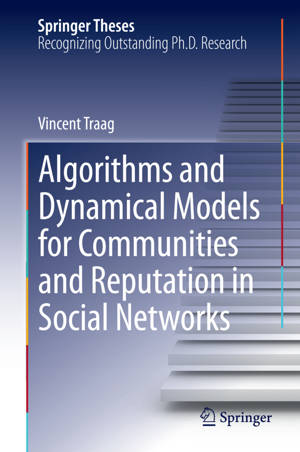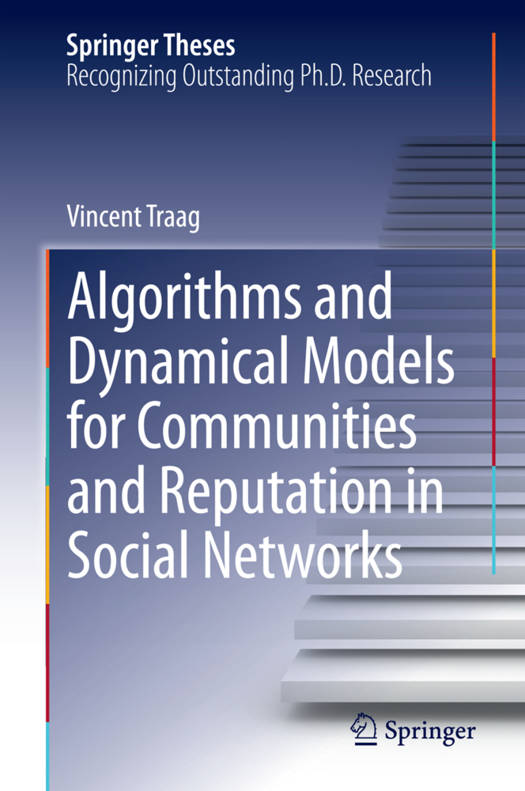
Bedankt voor het vertrouwen het afgelopen jaar! Om jou te bedanken bieden we GRATIS verzending (in België) aan op alles gedurende de hele maand januari.
- Afhalen na 1 uur in een winkel met voorraad
- Gratis thuislevering in België vanaf € 30
- Ruim aanbod met 7 miljoen producten
Bedankt voor het vertrouwen het afgelopen jaar! Om jou te bedanken bieden we GRATIS verzending (in België) aan op alles gedurende de hele maand januari.
- Afhalen na 1 uur in een winkel met voorraad
- Gratis thuislevering in België vanaf € 30
- Ruim aanbod met 7 miljoen producten
Zoeken
Algorithms and Dynamical Models for Communities and Reputation in Social Networks
Vincent Traag
€ 153,95
+ 307 punten
Uitvoering
Omschrijving
A persistent problem when finding communities in large complex networks is the so-called resolution limit. This thesis addresses this issue meticulously, and introduces the important notion of resolution-limit-free. Remarkably, only few methods possess this desirable property, and this thesis puts forward one such method. Moreover, it discusses how to assess whether communities can occur by chance or not. One aspect that is often ignored in this field is treated here: links can also be negative, as in war or conflict. Besides how to incorporate this in community detection, it also examines the dynamics of such negative links, inspired by a sociological theory known as social balance. This has intriguing connections to the evolution of cooperation, suggesting that for cooperation to emerge, groups often split in two opposing factions. In addition to these theoretical contributions, the thesis also contains an empirical analysis of the effect of trading communities on international conflict, and how communities form in a citation network with positive and negative links.
Specificaties
Betrokkenen
- Auteur(s):
- Uitgeverij:
Inhoud
- Aantal bladzijden:
- 229
- Taal:
- Engels
- Reeks:
Eigenschappen
- Productcode (EAN):
- 9783319063904
- Verschijningsdatum:
- 28/05/2014
- Uitvoering:
- Hardcover
- Afmetingen:
- 162 mm x 243 mm
- Gewicht:
- 479 g

Alleen bij Standaard Boekhandel
+ 307 punten op je klantenkaart van Standaard Boekhandel
Beoordelingen
We publiceren alleen reviews die voldoen aan de voorwaarden voor reviews. Bekijk onze voorwaarden voor reviews.









